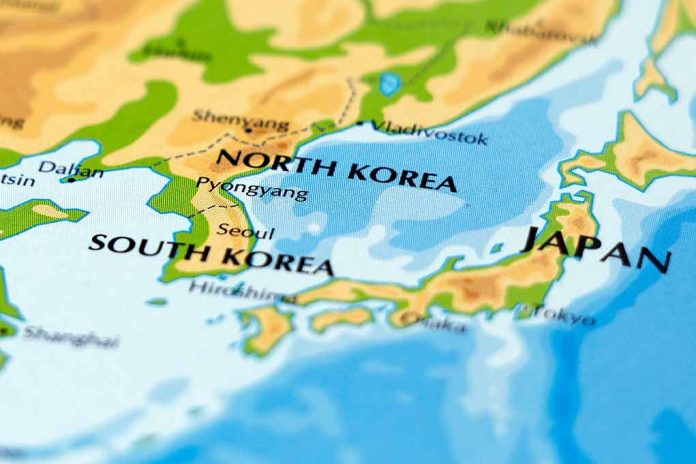
South Korea seeks exemption from U.S. steel and aluminum tariffs, citing strong trade partnerships and economic contributions.
Key Takeaways
- South Korea requested exemption from U.S. tariffs, emphasizing existing free trade agreement and low import duties on American products.
- Deputy Trade Minister Park Jong-won met with U.S. officials to discuss the exemption during a Washington visit.
- South Korean firms invested $21.5 billion in U.S. projects in 2023, becoming the top global investor in the country.
- Proposed 25% tariffs on steel and aluminum imports could significantly impact South Korea’s trade-dependent economy.
- South Korea’s economic growth forecast was lowered due to concerns over Trump’s proposed tariffs and trade measures.
South Korea’s Plea for Tariff Exemption
South Korea has requested an exemption from proposed U.S. tariffs on steel and aluminum imports. Deputy Trade Minister Park Jong-won traveled to Washington to meet with officials from the White House, Department of Commerce, and Office of the U.S. Trade Representative. The move comes as President Donald Trump’s administration plans to impose a 25% tariff on steel and aluminum imports, citing national security concerns.
Park emphasized the strong economic ties between the two nations, highlighting South Korean investments in the U.S. and the elimination of tariffs on most items under the Korea-U.S. Free Trade Agreement. South Korea’s request for exclusion extends beyond steel and aluminum to other goods potentially affected by the new trade measures.
#SouthKorea has asked Washington to exclude it from planned #US tariffs on steel and aluminum, Seoul’s trade ministry says.https://t.co/eCkkjJu6Kb
— Al Arabiya English (@AlArabiya_Eng) February 21, 2025
South Korean Investments in the U.S.
In a bid to strengthen its case for exemption, South Korea pointed to its significant investments in the United States. In 2023, South Korean firms invested a staggering $21.5 billion in U.S. projects, making it the top global investor in the country. This investment surge was largely driven by the Biden administration’s CHIPS Act, which aims to reduce reliance on China and incentivize semiconductor and clean energy manufacturing in the U.S.
Major South Korean projects in the U.S. include Samsung’s semiconductor factory in Texas and Hyundai’s electric vehicle plant in Georgia. These investments not only create jobs for American workers but also contribute to the U.S. economy’s growth and technological advancement.
Economic Implications of Proposed Tariffs
The proposed tariffs have raised concerns about their potential impact on South Korea’s economy. The Korea Development Institute (KDI) has already lowered the country’s growth forecast from 2.0% to 1.6% due to weak domestic demand and slowing exports. While the immediate impact of steel and aluminum tariffs might not be severe, potential increases in duties on semiconductors and cars could significantly harm South Korea’s trade-dependent economy.
South Korea’s steel industry, already facing challenges from oversupply and decreased global demand, could be further impacted if Chinese steel redirects to other markets as a result of U.S. tariffs. This situation underscores the complex web of global trade relationships and the potential ripple effects of protectionist policies.
South Korea’s Response and Future Outlook
In response to the looming trade challenges, South Korea’s acting president, Choi Sang-mok, convened a meeting to discuss the impact of U.S. trade measures. Officials were instructed to study responses from other major economies and to communicate South Korea’s position effectively to U.S. officials.
Deputy Trade Minister Park Jong-won has proposed high-level consultations to discuss cooperation and minimize damage from U.S. protectionist trade policies. As negotiations continue, the outcome of South Korea’s exemption request could shape the future of U.S.-South Korea trade relations and the broader landscape of international trade.
Sources
- South Korea asks U.S. for exemption from Trump’s proposed tariffs
- South Korea requests exclusion from US plan to increase tariffs
- South Korea says asked US to exclude it from new tariffs













